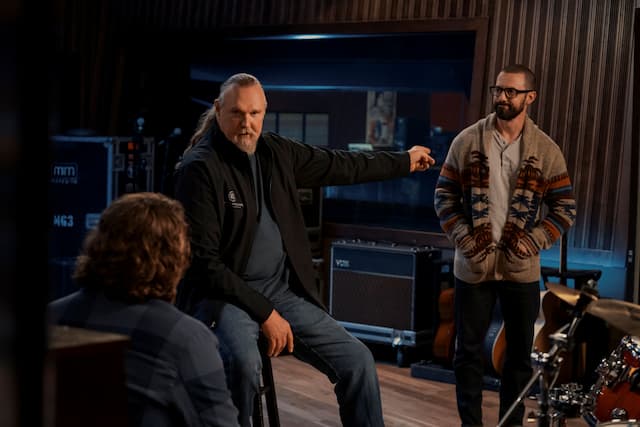How do the Prophets apply to us?
Did the Old Testament prophets describe current events, things happening in our lifetime?
There’s no question the Prophets spoke into specific times, addressing specific events. For example, this marks a major turning point in the Book of Isaiah:
Isaiah 39:5-6 (NIV)
5 Then Isaiah said to Hezekiah, “Hear the word of the Lord Almighty: 6 The time will surely come when everything in your palace, and all that your predecessors have stored up until this day, will be carried off to Babylon. Nothing will be left, says the Lord.”
In Chapters 1–39, Isaiah declared the word of the Lord for the kingdom of Judah. Now the kingdom falls apart. Isaiah 40–66 speaks to a completely different context where the kingdom no longer exists.
Isaiah 40, therefore introduces a new message:
Isaiah 40:1, 9–10 (NIV)
1 “Comfort, comfort my people,” says your God …
9 You who bring good news to Zion, … say to the towns of Judah, “Here is your God!” 10 See, the Sovereign Lord comes with power, and he rules with a mighty arm.
In a setting where God’s reign through his anointed ruler has gone, we hear God promising, “Good news!” This is the origin of the gospel! Understanding the two contexts in Isaiah is foundational for understanding the gospel.
Context is crucial for the other prophets too. After the exile, Jewish people remained under foreign rule. Most were still scattered among the nations (the diaspora). Haggai and Zechariah called them to return to Jerusalem, rebuild God’s house, and live as his people:
Zechariah 1:3 (NIV)
This is what the Lord Almighty says: ‘Return to me,’ declares the Lord Almighty, ‘and I will return to you,’ says the Lord Almighty.
“Return” has a dual meaning here. God was calling them to literally return to Jerusalem, if they wanted his leadership. Their ancestors had strayed from God’s leadership long before Babylon invaded and took them into exile (v. 4). The Lord was offering to restore the covenant relationship where they would once again live under God’s reign if they were willing.
That is the main message of the Prophets. Fee and Stuart express it like this:
As God’s appointed spokesmen, they call Yahweh’s people back to their covenant roots, announcing both the curses and blessings for covenant disloyalty or loyalty (see especially Deuteronomy 27–30). The exilic prophets also helped the people through their twofold loss — of the divine presence and of the promised land — thus playing the role of Moses and Joshua in reverse.
— How to Read the Bible Book by Book, (Zondervan, 2002) 171.
So, how do the prophets apply to us?
When we stray from God, the prophets still call us back to faithful life with God, and they do so on the basis of God’s faithfulness to us. They call us to reconcile with God, and they promise restored relationship with God. That’s a very relevant message.
But there’s a difference. Our relationship with God is not on the basis of the Sinai covenant; it’s on the basis of a new covenant established in Christ. That means some of the specifics in the prophets’ message won’t apply to us.
For example:
Ezekiel 22:26 (NIV)
Her priests do violence to my law and profane my holy things; they do not distinguish between the holy and the common; they teach that there is no difference between the unclean and the clean; and they shut their eyes to the keeping of my Sabbaths, so that I am profaned among them.
The Sinai Law required Israel to keep the Sabbath and eat only kosher food. These requirements (along with circumcision as the marker of the covenant people) are not transferred to the new covenant established in Christ. They don’t apply to all nations.
How to apply the Sinai Law was a big topic in New Testament times. The Holy Spirit said gentiles were not required to comply with Sinai Law. What the apostles expected of the nations sounds more like the covenant God established with all people than the covenant established with Israel (compare Acts 25:28-29 with Genesis 9:4-9).
Just as the Sinai covenant had established Israel as a nation under God’s reign, the prophets said God would make a new covenant to restore his reign to the earth in the Messiah, e.g. Jeremiah 31:31-34; Isaiah 59:20-21; Ezekiel 34:23-25; 37:24-28.
Consequently, as we read the Old Testament books, we’re always asking: What’s the same for us, and what’s different?
If we don’t do that, we will misapply the prophets. Examples:
- We misuse the prophets when we condemn people for failing to comply with the Sinai covenant, since we’re part of a different covenant.
- We misuse the prophets when we condemn politicians for failing to provide God’s justice in Australia, since we’re part of a different kingdom. (Unlike the kings of Israel and Judah, our politicians are not representing God’s reign.)
Conclusion
So, were the Prophets describing events in our lifetime? That was not their purpose. They were delivering God’s message to his people as his nation fell apart: splitting into two kingdoms (Israel and Judah), losing Israel to Assyria, losing Judah to Babylon, ruled by foreign kingdoms.
But that’s not the whole story. While everything was disintegrating around them, the prophets also delivered hope. God promised to restore his reign on earth through his Anointed, a descendant of King David. The New Testament tells us who that was. The Christ is the anointed ruler who fulfils the Prophets.
That’s the gospel. The good news is that everything promised in the Prophets is fulfilled in the Christ (the Anointed). Consequently, the people who are in Christ are beneficiaries of all that the Prophets promised.
Were the Prophets talking about things in our lifetime? It depends:
- No: if you’re talking about specific acts of rebellion against God’s leadership that are still current in our world, the Prophets were not directly addressing these events.
- Yes: if you’re talking about the community under God’s reign established in the Messiah when God raised him from the dead and gave them all authority, we are enjoying what they said would arrive in him.
Next time we’ll talk more about how the message of the Prophets finds fulfilment in the Christ.
What others are saying
John Goldingay, An Introduction to the Old Testament: Exploring Text, Approaches and Issues (London: SPCK, 2016), 199:
The first prophets who had books named after them were working at the time when the first big Middle Eastern empire, Assyria, started taking an interest in Judah, and even more in Ephraim, which was more powerful and sat on trade routes in which Assyria was interested. So one question that the prophets deal with is how to handle relations with the big power and with neighboring peoples. Assyria invaded both Ephraim and Judah and caused devastation. Later, the power of Babylon and that of Persia are key factors in the contexts that the prophets address.
Paul R. House and Eric Mitchell, Old Testament Survey, (Nashville, TN: B&H, 2007), 174:
A careful reading of Old Testament prophecy indicates that the vast majority of time the prophets speak about everyday matters related to covenant keeping. Perhaps as much as 90 percent of prophecy deals with moral problems we still face today. Only about 10 percent of prophecy predicts the future. Most of these predictions, such as the birth of Jesus, have already been fulfilled. Therefore, it is best to read prophecy primarily as teaching about faithful living rather than as blueprints for the future. The prophets do speak of the future, but this is not their main emphasis.
Related posts
Seeking to understand Jesus in the terms he chose to describe himself: son of man (his identity), and kingdom of God (his mission). Riverview Church, Perth, Western Australia View all posts by Allen Browne





